 |
Reports according to Master's order and rating
 Brunei
Brunei
The
Good Deeds of
|
When Brunei discovered in 1929 that it was rich in petroleum and natural
gas resources, it soon became one of the wealthiest countries in the
world. This economic prosperity brought stability, harmony and abundant
life to its people. Although many experts have attributed the country’s
success to the Islamic doctrines that are faithfully observed by the
Brunei people along with a very high average national income (about
US$2,000 per month), in fact the Sultan of Brunei
♥♥♥♥♥♥ has played a very
important role. Sultan Haji Hassanal Bolkiah, a sovereign who is highly
concerned about his subjects, has shown innumerable examples of good
governance. For instance, all citizens enjoy free medical service,
free education, exempted personal income tax, housing benefits and
low interest housing. Therefore, the Brunei people proudly call their
country the “Abode of Peace.”
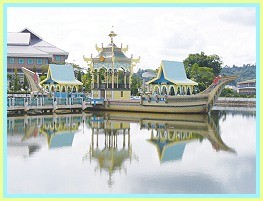 |
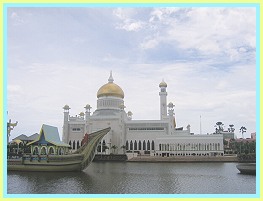 |
The administrative objective of the Brunei Department of Health is to provide the people with health care of the highest standards. In the areas of improving health conditions and upgrading medical services, a consistent policy has achieved substantial success and progress. For example, all citizens enjoy entirely free medical care. An airborne medical system takes care of people in remote and water settlement areas. Military personnel and their families also enjoy services from an independent military medical system. When the people require very professional medical technology that is not available in the country, the Brunei government will pay the expense of sending the patients for treatment in foreign countries.
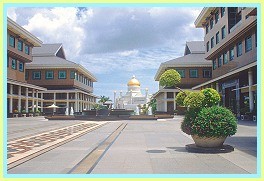 |
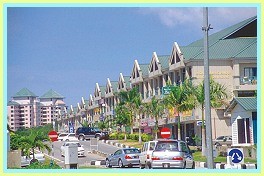 |
The long-term goal of the country’s housing program is to allow the people to own a home that has a comfortable and delightful environment. Since 80% of the working population are government employees, the government provides many long-term, low interest loans to the employees, which encourages them to build their own houses. For employees who do not have the land to build a house, subsidized loans are available for them to borrow and then repay in 20 to 30 years. In addition, the government also provides housing subsidies for employees to rent government quarters at very low cost.
Another government project is the LICS--Landless Indigenous Citizens Housing Scheme. This program takes care of native citizens who do not possess any land and is being launched in eight regions throughout four counties in the country. At present, more than 4,600 houses have been built, with over 1,200 units still being built. Also, disaster victims have not been forgotten; Sultan Haji Hassanal Bolkiah created a foundation that has built two new villages in Kampong Ayer.
Ever since Brunei gained independence in 1984, the sultanate government has endeavored to promote and adopt the national philosophy of Malay Islam Monarchy (Melayu Islam Beraja - MIB). Along with constructing a modern country, they also strictly observe Islamic doctrines and banned the sale of alcohol in 1991. More over, the Brunei government is very serious about Ramadan, a fasting month in the Islamic calendar. During Ramadan, all Muslims must fast from dawn to sunset, and more importantly, keep away from temptations, control their desires and thoughts and cultivate their spiritual growth. The working hours of all government officials and employees are reduced from seven and a half hours to six hours per day and all entertainment activities are suspended. A pious Muslim himself, the Sultan of Brunei also encourages his subjects to read the Koran every morning before going to work so as to receive guidance and blessing from Allah.
The most precious thing is that,
although the Sultan is not under the pressure of any political competition,
he willingly and wholeheartedly takes care of his subjects in every
aspect. As a result of his good governance, the Brunei people not
only feel honored to be part of their country but also proud to have
a sovereign who is so highly concerned for their well being. ![]()
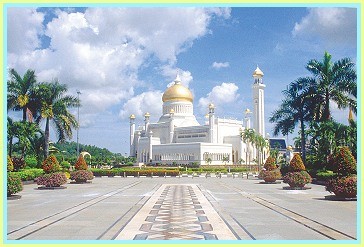 |